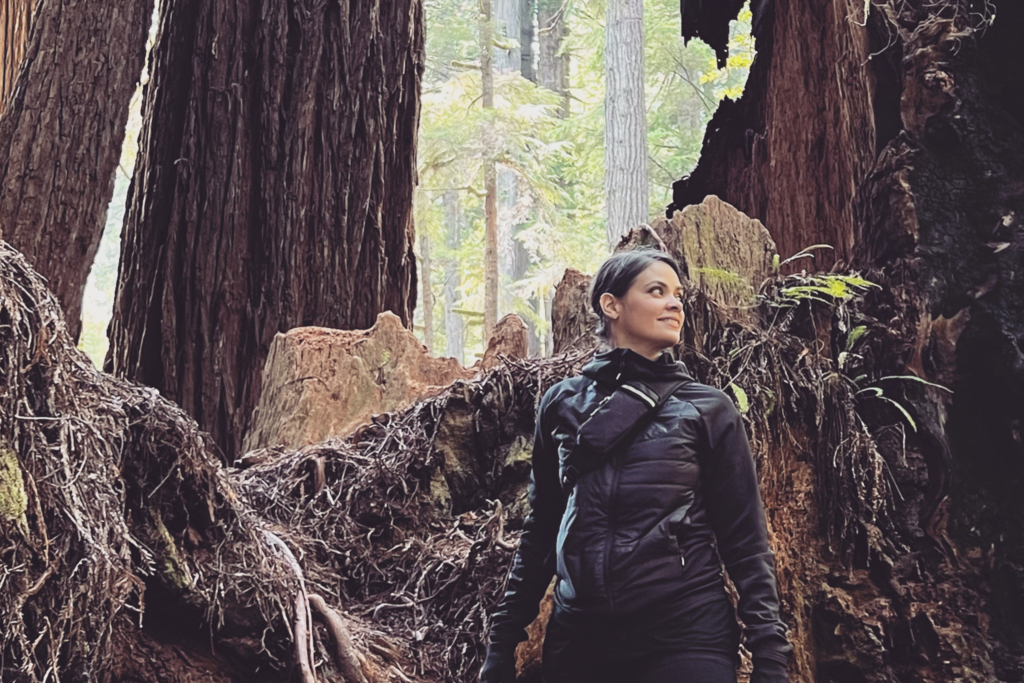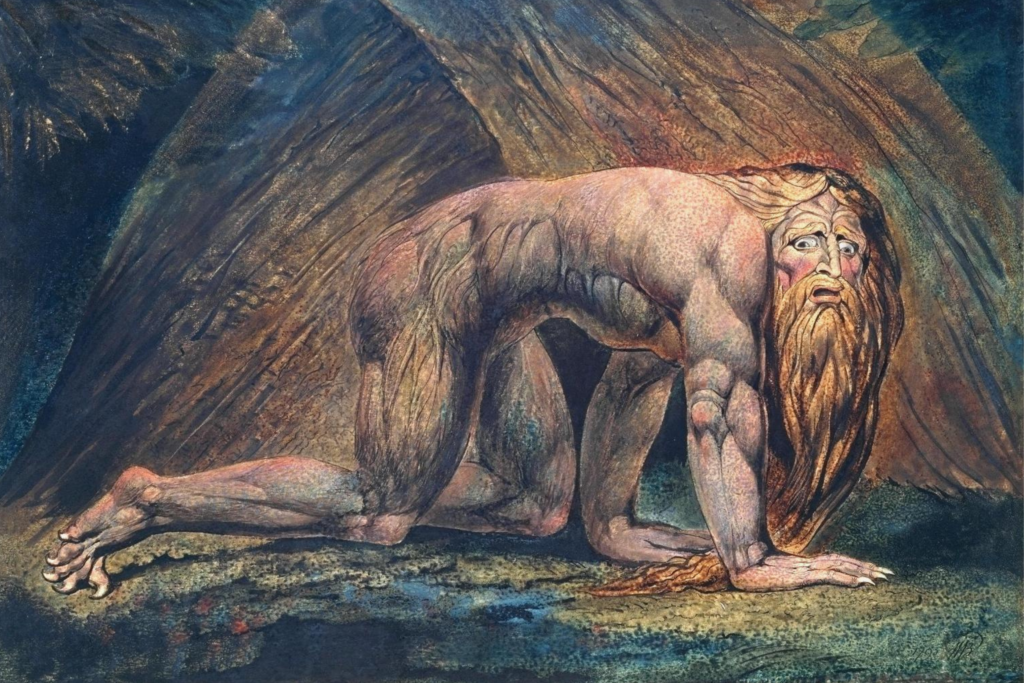
I recently watched a video of ibexes scaling the vertical wall of a dam to obtain salt and other minerals that are missing from their plant-based diet for proper bone, nerve, and muscle function. Once they make it to the top, they lick the salt off the concrete. I was stunned as they scaled the heights, and I was equally perplexed as to how they were doing it without slipping off.
The secret sauce of these mountain goats is their cloven hooves, which have incredible gripping capabilities. Their soles are rubbery and elastic, which allows them to easily navigate rocky terrains. The edges of their hooves are hard and sharp, which allows for tenacious traction. The structure of their toes allows them to be used as handholds on narrow cliffs and ledges. The sight of it is mind-blowing.
The agility of these ibexes’ feet reminded me of the last chapter of the Book of Habbakuk, so I decided to revisit the book written by the prophet of the same name. Although it’s only three chapters long, it’s weighty and timeless. It applies to us today as it did to Habakkuk’s world then.
Habakkuk laments to God. He expresses his grief and sorrow to God for allowing him to see iniquity, wickedness, destruction, violence, the perversion of justice, and the wicked surrounding the righteous. He has seen how the people of Judah have turned away from God toward idols and wickedness for years.
If we’re being honest, it’s hard to understand God’s apparent inaction in our grief over our circumstances, especially those involving injustices. We expect justice to be meted out quickly. But as we turn to the Lord with our hurts, we can be sure he hears our cries and will deal with wickedness in His perfect timing.
God says to Habbakuk, “Look among the nations and watch—Be utterly astounded! For I will work a work in your days which you would not believe, though it were told to you” (1:5). God responds to Habakkuk by sharing his plans to use the cruel and evil Babylonian nation to punish the apostate people in the southern kingdom of Judah.
But Habakkuk also questions why God would allow the wicked Babylonians to deal so treacherously with more righteous people than them, even though God is using them to judge and correct Judah’s sins.
Habakkuk then stands on his guard post on the rampart and watches, waiting for God to answer him.
And God answered him.
“Record the vision and inscribe it on tablets, that the one who reads it may run. For the vision is yet for the appointed time; it hastens toward the goal, and it will not fail. Though it tarries, wait for it; for it will certainly come, it will not delay.”
And then, God distinguishes between two types of people: the proud and the righteous. He says that the soul of the proud is not right within him, but the just will live by faith. (Hab. 2:4)
God then decrees five woes against the Babylonians for their evil, godless ways. It could equally apply to Judah at that time or any world power and be a lesson for us all. The first speaks of theft, the second of greed, the third of violence, the fourth of drunkenness, lust, and corruption, and the fifth of idolatry. God lays out his reasons for judgment against the wicked.
Habakkuk’s third and final chapter is a song of praise in response to the vision God asked the prophet to record earlier. It describes Jesus Christ’s second coming, the judgment of His enemies, and His people’s deliverance.
It would be accurate to say that wickedness has been increasing, and darker days are on the horizon, but there is hope for those who make the Most High their dwelling place. He will turn our mourning into dancing one day. The book ends with Habakkuk’s last words of faith for anyone facing hard times.
Although the fig tree shall not blossom, neither shall fruit be in the vines; the labor of the olive shall fail, and the fields shall yield no meat; the flock shall be cut off from the fold, and there shall be no herd in the stalls: Yet I will rejoice in the LORD, I will joy in the God of my salvation. The LORD God is my strength, and he will make my feet like hinds’ feet, and he will make me walk upon my high places. —Habakkuk 3:17-19
Let’s not be dismayed by what’s happening around us, even in times of extreme lack and wickedness. The key to not becoming overwhelmed is to praise God, rejoice, and be grateful for His faithfulness, despite what we’re going through. God will most assuredly come through. He will provide for and protect us, strengthening and equipping us to rise above it all in faith and expectation.
He will make our feet like the ibex, enabling us to ascend the mountain of God, where we’re always safe in the secret place of His presence. Just like those mountain goats scale the heights to get what they need to survive, we also know that the source of our life and well-being is our creator, and to Him, we turn with confidence in His unfailing love.
How long, Lord, must I call for help, but you do not listen? or cry out to you, “Violence!” but you do not save? Why do you make me look at injustice? Why do you tolerate wrongdoing? Destruction and violence are before me; there is strife, and conflict abounds. Therefore the law is paralyzed, and justice never prevails. The wicked hem in the righteous, so that justice is perverted. - Habakkuk 1:2-4 NIV
Then the Lord answered me and said, “Record the vision and inscribe it on tablets, that the one who reads it may run. For the vision is yet for the appointed time; It hastens toward the goal and it will not fail. Though it tarries, wait for it; For it will certainly come, it will not delay." - Habakkuk 2:2-3 NASB
Though the fig tree do not blossom, nor fruit be on the vines, the produce of the olive fail and the fields yield no food, the flock be cut off from the fold and there be no herd in the stalls yet I will rejoice in the Lord, I will joy in the God of my salvation. God, the Lord, is my strength; he makes my feet like hinds’ feet, he makes me tread upon my high places. - Habakkuk 3:17-19 RSV
Hace poco vi un vídeo de cabras montesas escalando la pared vertical de una presa para obtener sal y otros minerales que les faltan en su dieta vegetal para el correcto funcionamiento de los huesos, los nervios y los músculos. Una vez que llegan a la cima, lamen la sal del hormigón. Me quedé atónita al ver cómo escalaban las alturas, y me quedé igualmente perpleja al ver cómo lo hacían sin resbalarse.
El ingrediente secreto de estas cabras montesas son sus pezuñas hendidas, que tienen una capacidad de agarre increíble. Sus suelas son gomosas y elásticas, lo que les permite desplazarse fácilmente por terrenos rocosos. Los bordes de sus pezuñas son duros y afilados, lo que les permite una tracción tenaz. La estructura de sus dedos les permite ser utilizados como asideros en acantilados y cornisas estrechas. La vista es alucinante.
La agilidad de las patas de estas cabras montesas me recordó el último capítulo del Libro de Habacuc, así que decidí volver a leer el libro escrito por el profeta del mismo nombre. Aunque sólo tiene tres capítulos, es importante y atemporal. Se aplica a nosotros hoy como se aplicaba al mundo de Habacuc en aquel entonces.
Habacuc se lamenta ante Dios. Expresa su dolor y pena a Dios por permitirle ver la iniquidad, la maldad, la destrucción, la violencia, la perversión de la justicia y a los malvados rodeando a los justos. Habacuc ha visto cómo el pueblo de Judá se ha alejado de Dios hacia los ídolos y la maldad durante años.
Si somos honestos, es difícil entender la aparente inacción de Dios en nuestro dolor por nuestras circunstancias, especialmente las que involucran injusticias. Esperamos que la justicia se imparta rápidamente. Pero cuando nos volvemos al Señor con nuestras heridas, podemos estar seguros de que escucha nuestros clamores y se ocupará de la maldad en Su tiempo perfecto.
Dios le dice a Habacuc: «Mira entre las naciones y observa; ¡quedaos atónitos! Porque haré en vuestros días una obra que no creeréis si se os contara» (1:5). Dios le responde a Habacuc compartiendo sus planes de usar a la cruel y malvada nación babilónica para castigar al pueblo apóstata del reino del sur de Judá.
Pero Habacuc también se pregunta por qué Dios permitiría que los malvados babilonios trataran de manera tan traicionera a personas más justas que ellos, a pesar de que Dios los está usando para juzgar y corregir los pecados de Judá.
Entonces Habacuc se para en su puesto de guardia en la muralla y observa, esperando que Dios le responda.
Y Dios le respondió.
«Escribe la visión y escríbela en tablas, para que corra el que la lea. Porque la visión aún está a tiempo; se apresura hacia el fin, y no fallará. Aunque tarde, espérala; porque sin duda vendrá, no tardará».
Y luego, Dios distingue entre dos tipos de personas: los orgullosos y los justos. Él dice que el alma del orgulloso no es recta en sí misma, pero el justo vivirá por la fe. (Hab. 2:4)
Dios luego decreta cinco ayes contra los babilonios por sus caminos malvados e impíos. Podría aplicarse igualmente a Judá en ese momento o a cualquier potencia mundial y ser una lección para todos nosotros. El primero habla del robo, el segundo de la avaricia, el tercero de la violencia, el cuarto de la borrachera, la lujuria y la corrupción, y el quinto de la idolatría. Dios expone sus razones para juzgar a los malvados.
El tercer y último capítulo de Habacuc es un canto de alabanza en respuesta a la visión que Dios le pidió al profeta que registrara anteriormente. Describe la segunda venida de Jesucristo, el juicio de sus enemigos y la liberación de su pueblo.
Sería preciso decir que la maldad ha ido aumentando y que se avecinan días más oscuros, pero hay esperanza para quienes hacen del Altísimo su morada. Un día, Él convertirá nuestro duelo en baile. El libro termina con las últimas palabras de fe de Habacuc para todo aquel que esté atravesando tiempos difíciles.
Aunque la higuera no florezca, ni en las viñas haya frutos, ni falte el producto del olivo, ni los labrados den mantenimiento, ni las ovejas sean quitadas de la majada, ni haya vacas en los establos; con todo, yo me alegraré en Jehová, me gozaré en el Dios de mi salvación. Jehová Dios es mi fortaleza, y hará mis pies como de ciervas, y en mis alturas me hará andar. —Habacuc 3:17-19
No nos desanimemos por lo que sucede a nuestro alrededor, incluso en tiempos de extrema carencia y maldad. La clave para no abrumarnos es alabar a Dios, regocijarnos y estar agradecidos por Su fidelidad, a pesar de lo que estamos atravesando. Dios, con toda seguridad, nos ayudará. Él nos proveerá y nos protegerá, nos fortalecerá y nos equipará para superar todo esto con fe y expectativa.
Él hará nuestros pies como los de los íbices, permitiéndonos ascender a la montaña de Dios, donde siempre estaremos seguros en el lugar secreto de Su presencia. Así como esas cabras montesas escalan las alturas para conseguir lo que necesitan para sobrevivir, también sabemos que la fuente de nuestra vida y bienestar es nuestro Creador, y a Él nos dirigimos con confianza en Su amor infalible.



 1 Chronicles 29:6-9; Ephesians 4:11-16.
1 Chronicles 29:6-9; Ephesians 4:11-16. Hebrews 9:1-9; Judges 1:9-15
Hebrews 9:1-9; Judges 1:9-15